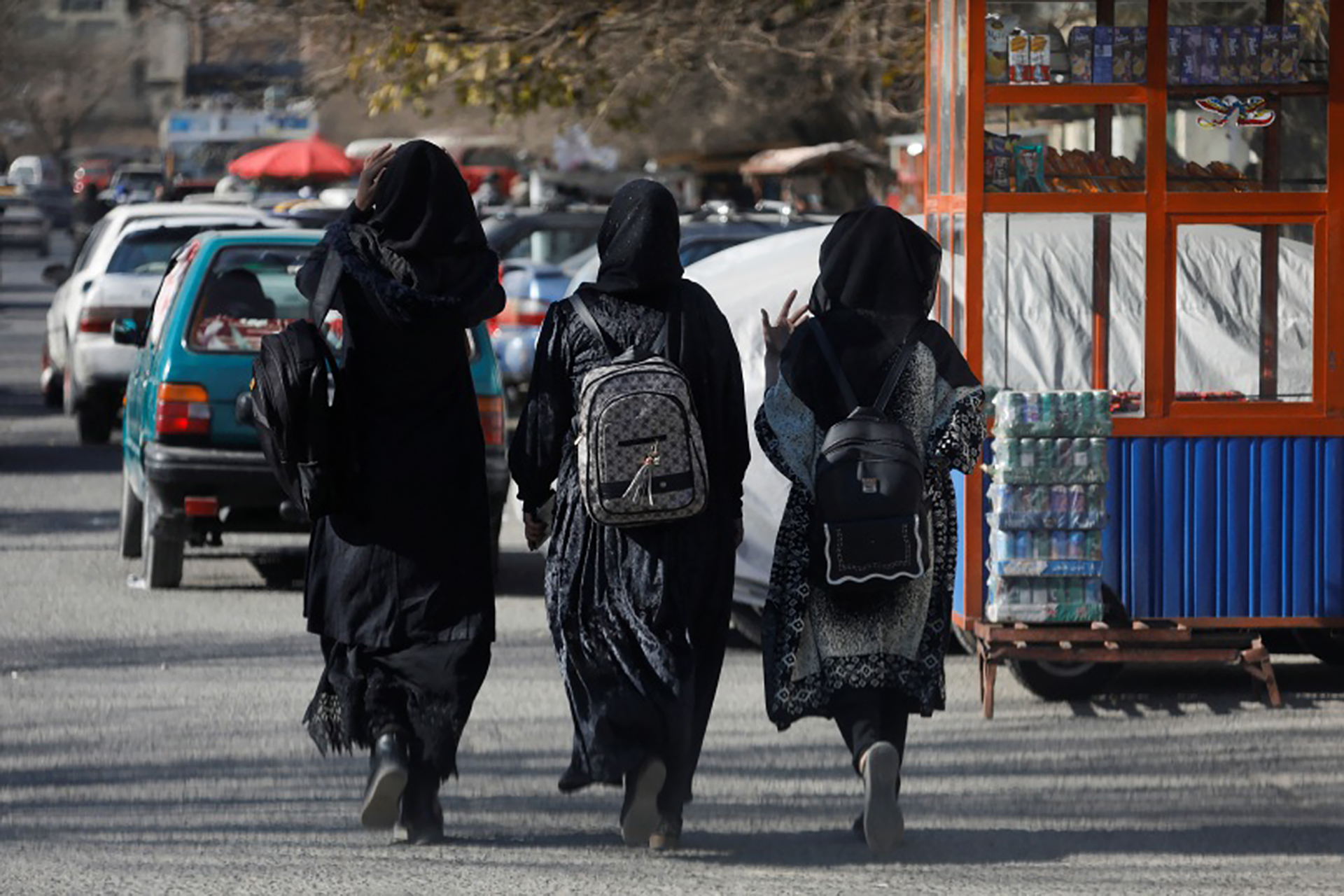Despite the Afghan Taliban's pledge at the beginning of its return to power in 2021 to respect the rights of Afghan women and the signs of reassurance it showed, its recent decisions regarding banning university education for Afghan women were considered a major setback and a retraction from those pledges.
The Taliban's decision to prevent girls from university education struck girls and women across Afghanistan, as the decision came as part of a series of decisions taken by the movement since its return to power in August of last year, against women's education and work.
It had started by banning the teaching of girls in middle and high schools.
It also dispensed with the services of Afghan women working in the public office, then prohibited women from going to public parks and sports spaces, and also abolished the Ministry of Women's Affairs and replaced it with the morality police, and the last of these decisions was to prevent women from working for local and foreign organizations.
Regarding the background of these decisions, Husni Jalil, the former deputy minister for policies and planning in the Afghan Ministry of Women's Affairs, said - in her interview with the "Scenarios" program (29/12/2022) - that the issue is deeper than seeking international support, and the matter was not shocking to Afghan women given For the previous pressures experienced with the Taliban government.
deterrent weapon
For his part, political analyst Nusrat Haqbal said that the supreme leadership in Afghanistan does not care about suspending or reducing international aid and does not take international pressure seriously, but it pays more attention to the positions of ministers as well as the reactions of the Afghan people.
He pointed out that there are frequent meetings to persuade the leaders in Kabul to lift these decisions, given their negative repercussions on the Afghan people and the view of the international community, and this is what constitutes a real concern among the ranks of the government in Kabul.
Professor at the College of Public Policy at Hamad Bin Khalifa University, Sultan Barakat, also considered that the aid weapon will not succeed in making the Taliban government respect women's rights, but rather may harm the country more, because the aid the country receives is humanitarian and does not relate to supporting the economy and investment.
However, what may constitute a key to putting pressure on the Taliban movement is recognizing it and opening economic and trade relations with it, considering that it is internal pressure that would make the Taliban surrender, not international moves.
Numbers and statistics
In terms of numbers, it is indicated that the female enrollment rate in higher education in Afghanistan does not exceed 1% of the age group concerned with joining the university, according to relevant United Nations reports, which is the lowest among all countries.
This comes in light of the presence of 40 public universities and 140 private universities, while most of the 1,880 girls' secondary schools in Afghanistan are still closed.
It is noteworthy that before the Taliban came to power in 1996, the percentage of female teachers at Kabul University was 60%, and nearly half of the students were female.
Women also made up about 70% of school teachers, 50% of government civil servants and 40% of doctors.
However, the Afghan government decided to prevent women from working in foreign and local organizations, as stated in a letter from the Ministry of Economy sent to these organizations.
The letter threatened to expeditiously revoke the license of any organization that did not comply with the ban.
Financial loss
The decisions of the Taliban government were met with condemnation and condemnation from the international community, as 7 foreign organizations closed their doors in protest against the decision, which caused a decrease in the percentage of employees working in these organizations to 65%.
The United Nations Development Program estimates Afghanistan's loss as a result of preventing Afghan women from working at $1 billion each year.
International organizations say that more than 80% of the Afghan people are below the poverty line.
Regarding the decisions of the Taliban government, United Nations Secretary-General António Guterres tweeted: “Deeply shocked by reports that the Taliban have banned women and girls from entering universities. Denial of education violates equal rights and will have a devastating impact on the future of the country, and I urge the Taliban ensuring equal access to education for all.

